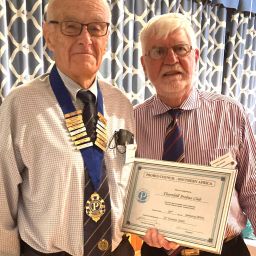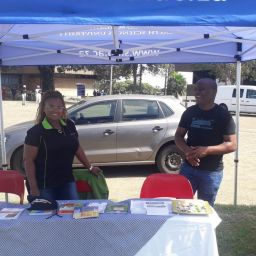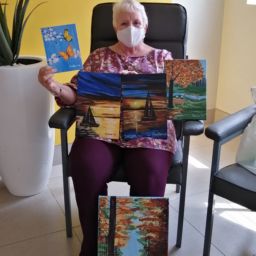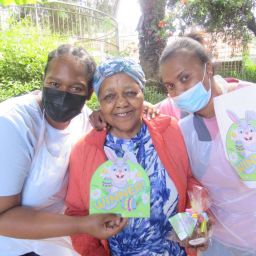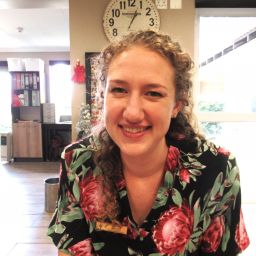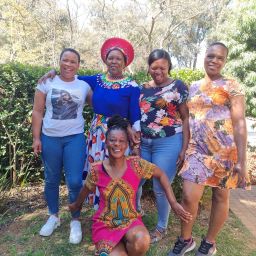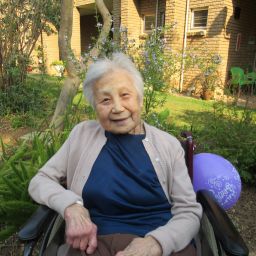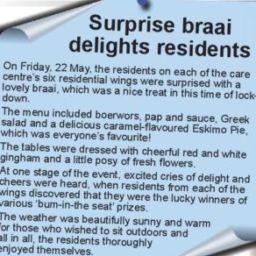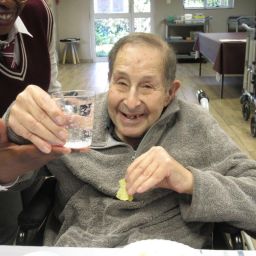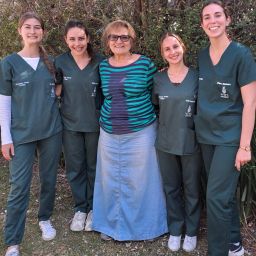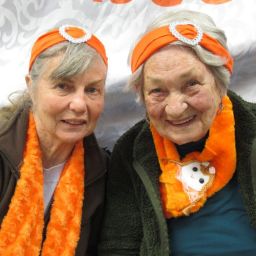The past year marked a period of significant management change at Rand Aid Association. On 26 August 2019, Rae Brown, who had been CEO for almost 15 years, passed away after a long period of illness. Shortly thereafter, John Robinson, who had been a board member for 17 years and chairman of the Association for the past eight years, resigned. His resignation came at a time when the process to fill the CEO position had just started.
The stability of Rand Aid Association during the last years of Rae’s illness and subsequent to the appointment of a new CEO on 1 March 2020, is due largely to the strong senior management team in place who steered this ship during very uncertain times. I wish to pay tribute to each and every one of them for their leadership, commitment and perseverance. More than ever before it was clear how the success of this organisation is tied to the way in which each and every staff member, at all levels, gives his or her best to provide a service that makes us proud.
Rae Brown’s knowledge and insight was invaluable to Rand Aid. His input helped to create a structured, well-managed organisation with a clear direction based on sound financial principles. At the same time he was a human being with incredible empathy for the people whom the Association seeks to serve. It was thus no easy task to find his replacement. The Board of Management, through a highly-recommended agency, went through an extensive recruiting process. Although it took time, we are very pleased to have secured the services of Peter Quinn, with his extensive business, accounting and marketing background. He brings sound knowledge and experience as well as new expertise and skills that will benefit the organisation going forward. We wish him many productive years at Rand Aid.
When the position of chairman became vacant, I had no hesitation in accepting this challenge. I have been proudly associated with Rand Aid for more than 21 years. I also served as Deputy Chairman for the past nine years and am well versed in the activities of the Association. What makes my task easier is that fact that the Association has longstanding board members with a deep interest in the services that Rand Aid provides. I wish to express my appreciation to all the members of the Board for their support and guidance to date. Rand Aid is truly fortunate to have your calibre of person and expertise available to it. Furthermore, the fact that you serve on the board without any remuneration or reimbursement for services, is truly remarkable. I, as well as each member of the staff, are highly appreciative of your commitment to this good cause.
During the first quarter for 2020 it became clear that South Africa will not be spared from the dreaded Coronavirus disease – Covid-19. In addition, medical scientists warned that persons over the age of 60 and those with co-morbidities may be more at risk of contracting the disease and of experiencing severe symptoms with a low rate of recovery. Rand Aid management immediately took action. Various measures were put in place as a result of which Rand Aid, classified as an essential service organisation, and could continue operating without any interruption providing ongoing support and services to residents throughout all levels of the lockdown.
At the time of writing this report, Rand Aid was operating Covid-19 isolation areas for infected residents at both the Ron Smith Care Centre and Thembalami Care Centre. Village residents who had contracted the disease, but who did not require hospitalisation, were being supported by village nurses in conjunction with the residents’ respective doctors. Although 74 staff members also tested positive for Covid-19, the majority have recovered well or are on their way to full recovery. Thus far, Rand Aid has already spent R2,152m on preventative measures as well as treatment services to combat Covid-19. These include personal protective equipment, oxygen concentrators and other medical equipment, additional nursing services for staff on sick leave or to operate isolation areas, laundry and waste management, Covid-19 testing, cleaning equipment and sanitising services. It would appear that we have not yet reached the plateau of Covid-19 infections in Gauteng and the fight continues. Considering the plight of many other non-profit organisations, we are fortunate indeed to have access to the necessary resources to manage the pandemic in a professional manner. Nevertheless, responsible financial management requires prudence in these uncertain times and as a result of the unforeseen Covid-19 expenses we have placed a temporary hold on planned capital expenses and preventative maintenance for the current year. Only the most essential items will be attended to.
The development of a new retirement village on land purchased from the Glendower Golf Club remains a high priority. Our professional team submitted the town planning application towards the end of 2019 but it would appear that the municipal processes have been severely affected by the lock down regulations. It is our plan to develop 120 cottages and apartments on this 8,1 hectare of land, thus extending our life rights portfolio to 731 units.
Increasing our life right portfolio is a strategic objective in order to maintain and grow our social welfare services. Due to the low level of government subsidies, our social welfare services are dependent on our business model of internal cross-subsidisation. In short, the development and sale of retirement accommodation on a life right basis by the RA Welfare Development Trust generates the funds required to fund any shortfall on our social welfare services. A careful balance between the need for and the availability of funds is thus of the utmost importance.
At the end of the financial year, an amount of R21 million was transferred from the RA Welfare Development Trust to Rand Aid to cover shortfalls. The close relationship between the Trust and Rand Aid, as managing agent of the life right retirement villages, is also of benefit to the residents in these villages. During the past year Rand Aid channelled R1 728 202 from unit sales in the Trust to the levy stabilisation funds of the three life right villages and a further R500 444 to fund capital projects and extraordinary repairs and maintenance in these villages. Since the inception of the levy stabilisation funds in April 2011 an amount of R13 556 108 has been used to ameliorate levy increases and a further R2 297 340 will be utilised in 2020/21. The value of the fund at 31 March 2020 was R5 407 719. The Trust also funded assets and capital projects to the value of R1 619 817 in the remainder of the services. The Trust’s investment portfolio, which is being managed by Investec Wealth & Investment, did well considering the insecurities in the market place caused by political ructions and the deterioration in state and state-owned entities. At year end the market value was R123,5 million.
The partnership between Rand Aid and our life right residents require special acknowledgement. By purchasing a life right, residents contribute to the investment portfolio and thus the funding and continuation of our welfare services. This support is core to the success of the Rand Aid business model. In addition, we are grateful for the way in which residents from all our facilities contribute by serving on the various boards and committees to ensure good governance or enhance social life and wellbeing in the villages. Many residents also become actively involved in our operations as volunteers and even more market our services by word of mouth. The latter is our most valuable marketing tool. We truly appreciate the positive and constructive input of residents at all levels of our operations and the harmony that exists in general. This is essential, not only for the stability of the organisation, but also for the security of its residents and staff.
The spirit that prevails throughout Rand Aid is reflected in the high demand for its services. All our facilities remained places of choice. High occupancy levels were maintained in our 24 hour residential care services. Resales and new leases in the retirement villages were achieved without delay and waiting lists were maintained at healthy levels.
The demands on all staff and management have always been high and with the onset of COVID-19, times have been extraordinary. From past experience I know that each and every one will give their best to ensure that Rand Aid weathers this storm and emerge stronger than ever.
Iain Fraser
Chairman
10 September 2020


